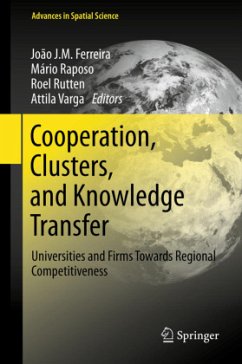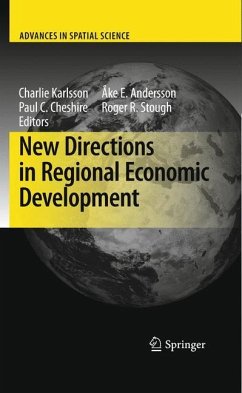
Innovation Clusters and Interregional Competition
Versandkostenfrei!
Versandfertig in 6-10 Tagen
115,99 €
inkl. MwSt.

PAYBACK Punkte
58 °P sammeln!
Empirical evidence about cluster building, the emphasis of new growth theory on innovation, the recent interest in economic geography and the high pressure on politicians to establish favourable conditions for attracting dynamic industries have triggered a wave of research during the last decade, trying to understand more deeply why, how and where clusters emerge, and what factors determine their respective success or failure. In this volume the world's leading experts contribute to our understanding of regional innovation, cluster formation and the factors influencing regional productivity an...
Empirical evidence about cluster building, the emphasis of new growth theory on innovation, the recent interest in economic geography and the high pressure on politicians to establish favourable conditions for attracting dynamic industries have triggered a wave of research during the last decade, trying to understand more deeply why, how and where clusters emerge, and what factors determine their respective success or failure. In this volume the world's leading experts contribute to our understanding of regional innovation, cluster formation and the factors influencing regional productivity and innovative performance. It provides a timely and comprehensive picture on innovation, location, networks and clusters as important means in an environment of intensifying interregional competition.














